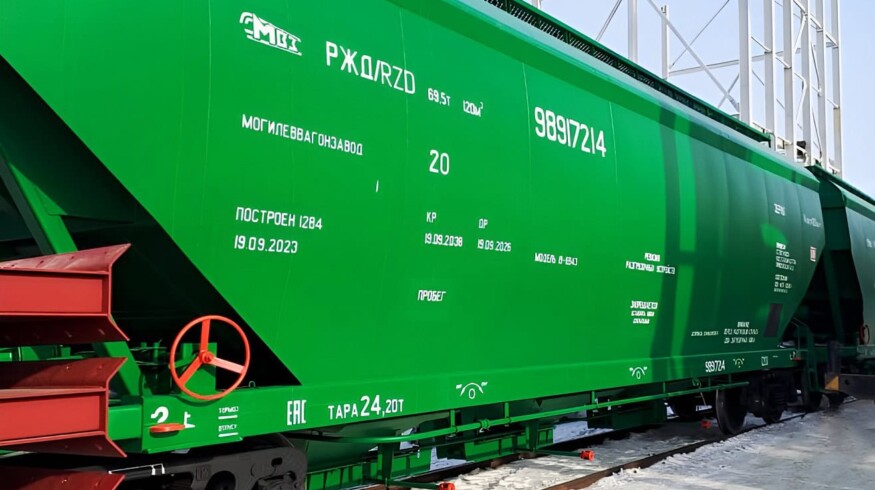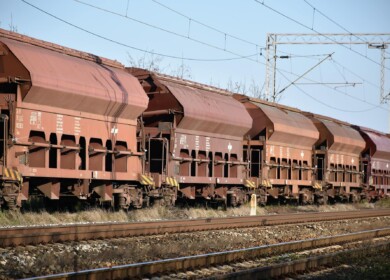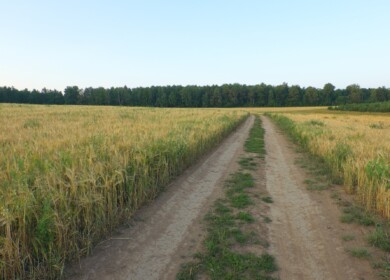August Group creates its own freight operator

To increase grain production’s profitability, the August Group, one of the largest Russian agro-holdings with a total land bank of 275,000 hectares, is implementing a major project to optimize grain transport processes. This includes the development of efficient railway logistics using their own grain hopper cars. August-Agro Management Company is advancing this initiative in collaboration with partners within the joint venture, the machine-transport company “Zveno.” Currently, the fleet consists of 75 wagons, with 50 of them in constant operation by August-Agro. By the end of 2024, the fleet is expected to expand to 200 units, with a five-year plan projecting a total of 1,000 wagons and an annual freight turnover of 1 million tons of grain.
The integration of logistical processes into the company’s operations has already reduced the share of transport costs in the price of grain supplied by August-Agro farms from the Republic of Tatarstan (a key region in August’s agricultural business) to 35%, down from 45% when using wagons from external traders. The launch of the “Sviyazhsk-Zernoprodukt” elevator complex, the largest in the republic, built by August, will enable the loading of full railway routes — 50-60 wagons per day — within 24 hours.
From February to April, approximately 4,000 tons (57 wagons) of wheat produced by August-Agro farms were shipped using their own wagons, both for domestic consumers and for export. These shipments were made from the Kulanga station (Tatarstan) to destinations including St. Petersburg and the port of Ust-Luga. August’s activity in organizing freight transport has become the first example in Tatarstan where an agricultural producer has taken on the formation of rolling stock, thereby creating conditions for increased grain supply volumes from the republic’s farms and reducing transport costs.
To address the issue of economic efficiency in agribusiness, August is developing its material and technical base, including reducing infrastructural and logistical costs as part of a vertical supply chain. This includes creating capacities for grain storage and reducing costs during loading, transshipment, and transportation. In the Republic of Tatarstan, the company is constructing two large elevator complexes with a total one-time storage capacity of over 200,000 tons, which can handle about 1 million tons of the crop annually. The commissioning of the first, “Sviyazhsk-Zernoprodukt,” planned for July this year, will significantly accelerate the processes and increase the volume of agricultural product shipments.
Carry-over stocks of produced grain remain a critical issue for Tatarstan’s farmers. Official data indicate that at the start of the 2024 season, these stocks amounted to 1.3 million tons, including 430,000 tons from the 2022 harvest and nearly 900,000 tons from 2023. August-Agro has managed to maximize the realization of available volumes, with plans to deliver the last batch of warehouse products to the customer in June, aiming to approach the new harvest season with zero carry-over stocks. The company notes that optimizing freight transport processes, including the use of their own wagons for railway shipments, played a crucial role in this achievement.
With the introduction of new elevator capacities, August plans to expand the geography of grain product deliveries by rail. Prospective destinations include the ports of Novorossiysk and Astrakhan, and possibilities for grain sales in Kazakhstan are being explored. Following the organization of the cargo flow to Ust-Luga, the company achieved a reduction in the share of transport costs in the price of products from 45% (when transported by external traders) to 35% (using their own wagons).
Enjoyed this story?
Every Monday, our subscribers get their hands on a digest of the most trending agriculture news. You can join them too!
















Discussion0 comments